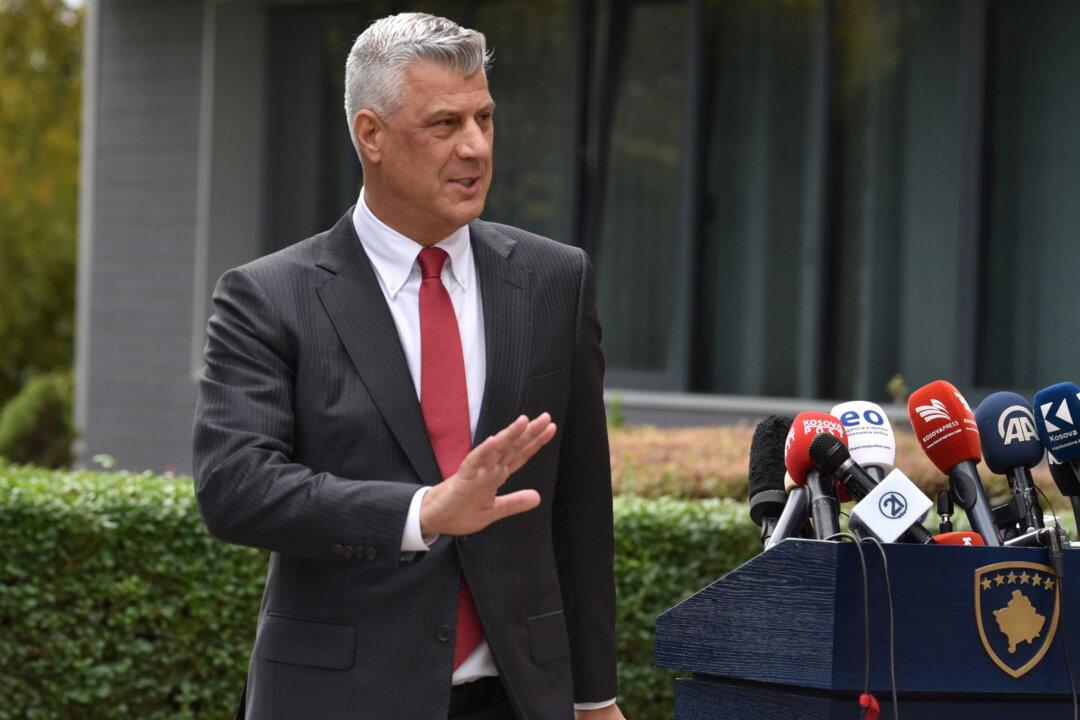PRISTINA, Kosovo—Kosovo President Hashim Thaci, a wartime hero turned politician, resigned on Nov. 5 after learning that a tribunal in The Hague has confirmed a war crimes indictment against him.
Thaci told a news conference in the Kosovo capital, Pristina, that he felt his resignation is necessary “to protect the integrity of the state.”





